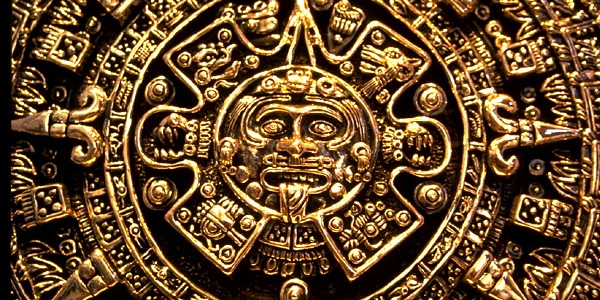 Today is the date for the long heralded Mayan apocalypse, which means that, if you’re reading this, it either didn’t happen or it happens later today. Or maybe, assuming the Mayans are actually on to something, it means simply that one age is coming to an end and another one is emerging. That kind of transition doesn’t happen overnight.
Today is the date for the long heralded Mayan apocalypse, which means that, if you’re reading this, it either didn’t happen or it happens later today. Or maybe, assuming the Mayans are actually on to something, it means simply that one age is coming to an end and another one is emerging. That kind of transition doesn’t happen overnight.
In the 1970’s, people talked about how we were entering “the Age of Aquarius.” Given the invention of the internet and the onslaught of globalization since that time, maybe they weren’t entirely wrong. Not that peace appears to have been guiding the planets, or love steering the stars.
I use the occasion to reflect upon a few literary passages describing apocalypses. (Or is it apocalypti? As Riley says to the heroine of the famous Buffy the Vampire Slayer series, “Buffy… when I saw you stop the world from, you know, ending, I just assumed that was a big week for you. It turns out I suddenly find myself needing to know the plural of apocalypse.”)
The most optimistic apocalypse I know is that of Percy Shelley, imagining a new day for Greeks fighting against their Turkish occupiers in “Final Chorus from Hellas”:
The world’s great age begins anew,
The golden years return,
The earth doth like a snake renew
Her winter weeds outworn:
Heaven smiles, and faiths and empires gleam,
Like wrecks of a dissolving dream.
A brighter Hellas rears its mountains
From waves serener far;
A new Peneus rolls his fountains
Against the morning star.
Where fairer Tempes bloom, there sleep
Young Cyclads on a sunnier deep.
A loftier Argo cleaves the main,
Fraught with a later prize;
Another Orpheus sings again,
And loves, and weeps, and dies.
A new Ulysses leaves once more
Calypso for his native shore.
Oh, write no more the tale of Troy,
If earth Death’s scroll must be!
Nor mix with Laian rage the joy
Which dawns upon the free:
Altho’ a subtler Sphinx renew
Riddles of death Thebes never knew.
Another Athens shall arise,
And to remoter time
Bequeath, like sunset to the skies,
The splendor of its prime;
And leave, if naught so bright may live,
All earth can take or Heaven can give.
Saturn and Love their long repose
Shall burst, more bright and good
Than all who fell, than One who rose,
Than many unsubdued:
Not gold, not blood, their altar dowers,
But votive tears and symbol flowers.
Oh, cease! must hate and death return?
Cease! must men kill and die?
Cease! drain not to its dregs the urn
Of bitter prophecy.
The world is weary of the past,
Oh, might it die or rest at last!
But that’s about as bright at apocalypses ever get. Usually, it seems, they stem from disenchantment with the current state of the world. In “Stanzas from the Grand Chartreuse,” Matthew Arnold sees one world having ended but laments that the new world hasn’t shown up yet:
Wandering between two worlds, one dead
The other powerless to be born,
With nowhere yet to rest my head
Like these, on earth I wait forlorn.
There is a particularly gruesome image that gets at this idea in Virginia Woolf’s Between the Acts. Note that, like Shelley, she too refers to a snake but in a very different way:
There, couched in the grass, curled in an olive green ring, was a snake. Dead? No, choked with a toad on its mouth. The snake was unable to swallow; the toad was unable to die. A spasm made the ribs contract; blood oozed. It was birth the wrong way round – a monstrous inversion.
So if the times seem stuck, total destruction can seem almost like a relief—which means there can be a kind of wish fulfillment tied up in apocalyptic thinking. Of course, in the event of an actual apocalypse, our stuck times would look pretty good.
Here are a couple of other apocalyptic visions. Pope at the end of The Dunciad believes he is witnessing the death of high culture:
Lo! thy dread Empire, Chaos! is restor’d;
Light dies before thy uncreating word:
Thy hand, great Anarch! lets the curtain fall;
And Universal Darkness buries All.
And then, of course, there is Yeats’ famous apocalypse:
The darkness drops again but now I know
That twenty centuries of stony sleep
Were vexed to nightmare by a rocking cradle,
And what rough beast, its hour come round at last,
Slouches towards Bethlehem to be born?
Check back tomorrow to see if the world is still here.